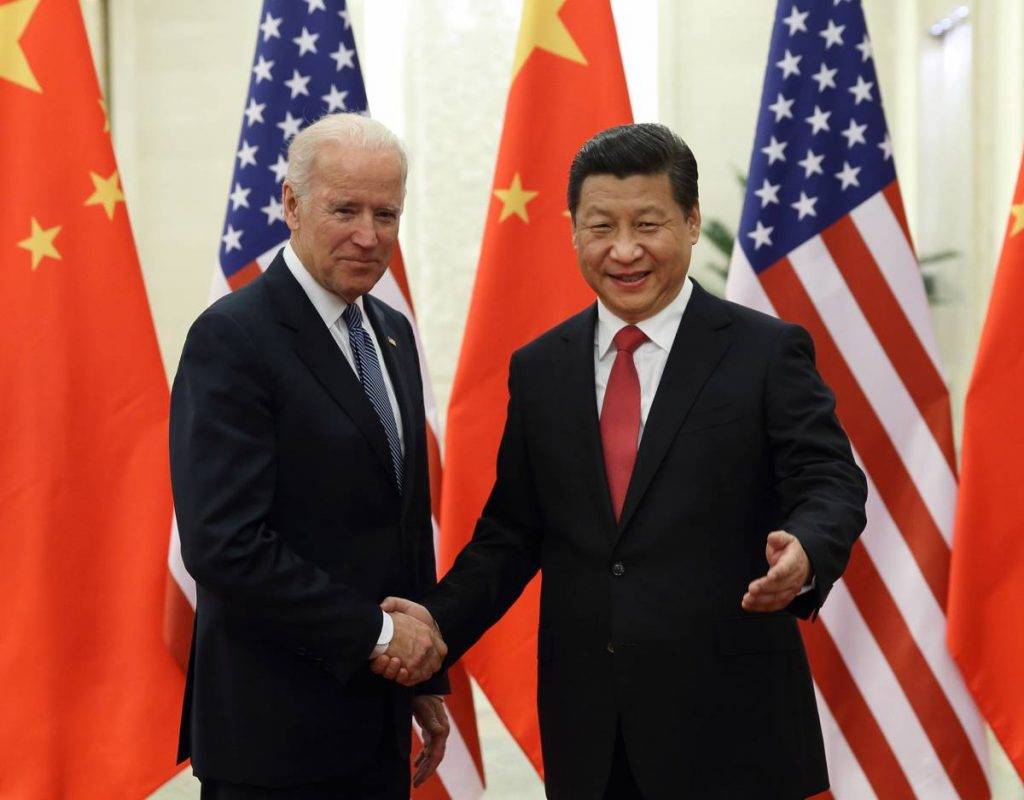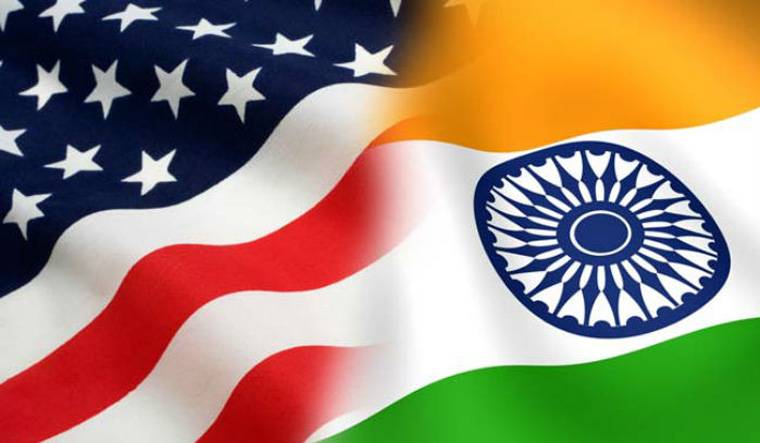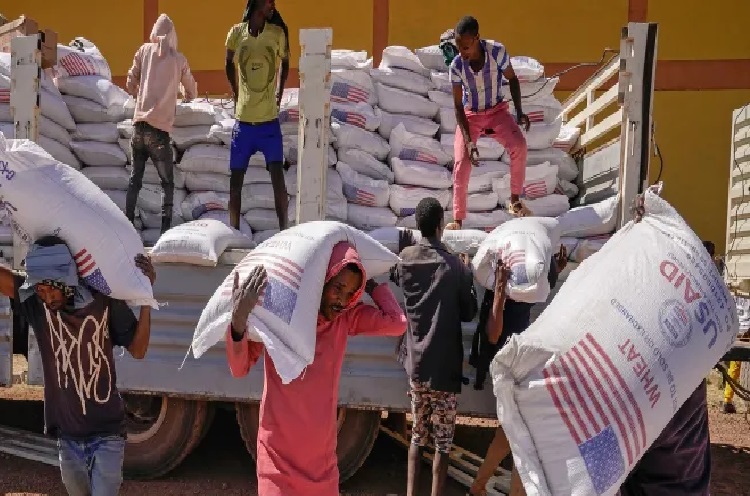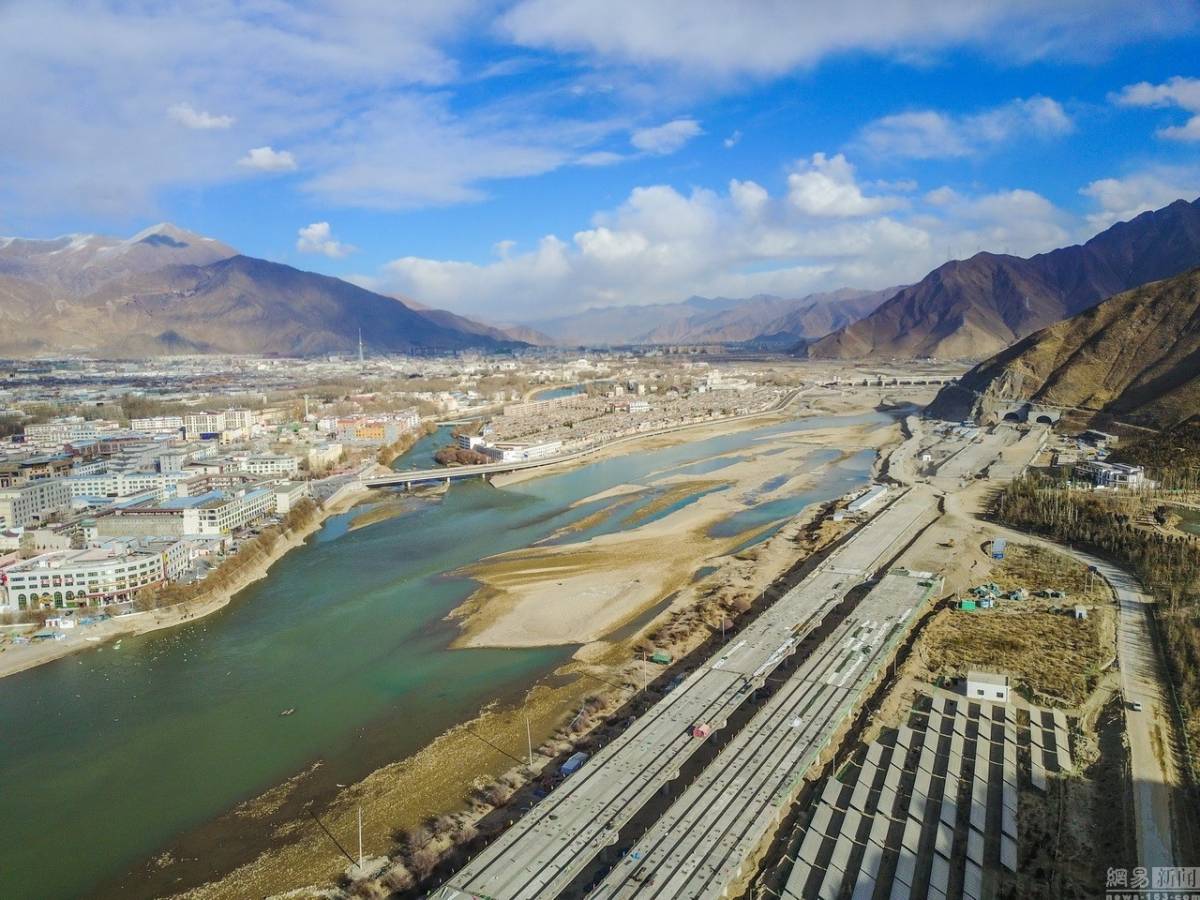The new report that Biden’s intelligence agencies are currently preparing, is expected to be ready by August end. The report, which could directly put the blame on China along with the issue of human rights violation in the Xinjiang region will have a damning effect on Beijing’s economy, a report by Mahua Venkatesh
The signatories of the much-hyped Regional Comprehensive Economic Partnership (RCEP) are keenly watching the US moves towards China. Amid the raging debate over the origin of Covid 19, the US is moving fast towards building international support to isolate China.
Of the four QUAD members–US, India, Japan and Australia, the latter two countries are also signatories of RCEP. Unsurprisingly, China has fiercely opposed the idea of QUAD.
Besides, the new report that Biden’s intelligence agencies are currently preparing, is expected to be ready by August end. The report, which could directly put the blame on China along with the issue of human rights violation in the Xinjiang region will have a damning effect on Beijing’s economy.
Depending on the content of the report, the US may even initiate the process of imposing sanctions against China.
“The RCEP becomes obsolete in case of the US-China competition escalating. If the US imposes sanctions against China, other RCEP members will not be in a position to carry out trade with Beijing,” Satoru Nagao, fellow at Hudson Institute told India Narrative.
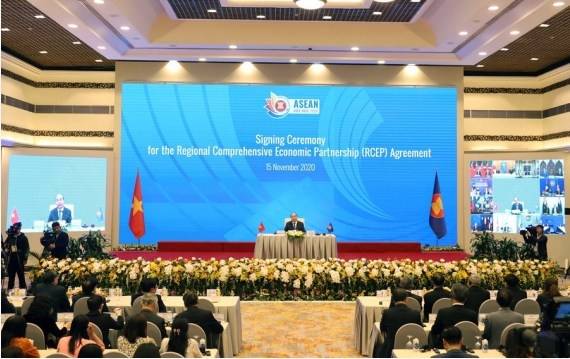
The mega trade deal was signed in November last year between 15 countries — China, Japan, South Korea, Australia, New Zealand, Vietnam, Thailand, Singapore, Philippines, Myanmar, Laos, Malaysia, Indonesia, Cambodia and Brunei. India, which was part of the negotiations, pulled out at the last minute.
In May, the European Parliament decided to halt investment agreements with China due to its record of human rights abuse. For Chinese President Xi Jinping, the in-principle agreement of the Comprehensive Agreement on Investment (CAI) signed between the EU and China was considered a big success.
“When the RCEP was envisaged and even signed last year, the geopolitical scenario was different. Today the global dynamics present a different picture and doubts will arise over the fate of the trade pact,” DK Srivastava, chief policy adviser, EY India told India Narrative.
Nagao added that the US, which has proposed an in-person Quadrilateral Security Dialogue — QUAD meeting in September, will try and gain support from the other core members of this informal group in isolating China. “One of the main reasons for China being able to keep the cost of production low for all these years is also due to human rights violations, especially in the Xinjiang region. This issue is likely to play up,” Nagao said.
He pointed out that the environmental issue in relation to China’s rare earth mining is also coming to the fore. “China can ignore the environment issue in its endeavour to intensify mining of rare earth and sell it cheap,” Nagao pointed out.
Meanwhile the Global Times in an editorial piece said that the US is trying to “build a long-term strategic public opinion and political containment against China by tracing the Covid 19 origins.” It also said that US President Joe Biden’s overall response to the pandemic has been no better than the Trump administration.
The editorial piece noted that the Biden administration is fully copying the Trump administration’s line of political hooliganism: using every means to frame China.
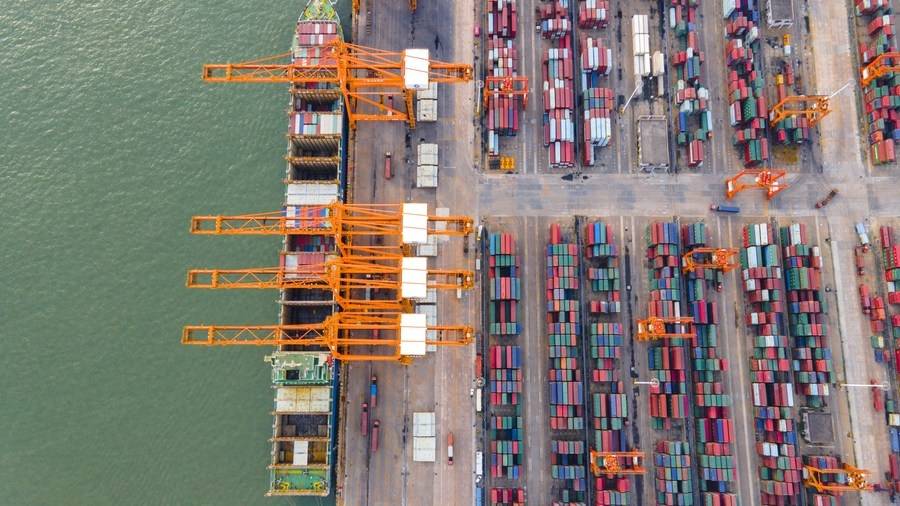
Quad summit to deliver major blow to China
The imminent in-person Quadrilateral Security Dialogue — QUAD meeting in September — is expected to be a crucial one as it is likely to further build pressure around China and put the focus back on the origin of Covid 19.
In May, US President Joe Biden ordered intelligence agencies to ‘redouble’ their efforts and prepare a fresh report on the origin of Covid 19 within 90 days. The report is expected to be ready by August end just ahead of the summit.
“As part of that report, I have asked for areas of further inquiry that may be required, including specific questions for China,” a statement from the US President read. The report is expected to be ready by August-end.
ALSO READ: Tibetan Prez thanks US for concerns over China’s abuses
“There are many circumstantial evidences to indicate China’s bio-tech programme is the origin of the virus. The report may indicate China’s bio-weapon-programme was the origin though there is no perfect evidence. The report will be discussed and the US would naturally seek legitimacy to put more pressure on China and even isolate it economically,” Satoru Nagao, fellow at Hudson Institute told India Narrative.
He added that the QUAD meeting will be closely monitored as the epicentre of world politics has now shifted towards the Indo- Pacific region. Nagao also said that depending on the content of the report, the US may even want to move towards imposing sanctions against China.
The Japan Times said that the gathering would underscore the unity among the four Indo- Pacific democracies amid China’s growing assertiveness. The newspaper added that Biden is seeking to build a position of strength to directly engage with Chinese leader Xi Jinping, possibly on the sidelines of the Group of 20 summit in Rome in late October.

Nagao said that the meeting between US, India, Japan and Australia may also look at creating an alternative supply chain in the world, which excludes China.
China has been caught in a global storm for its economic and military assertiveness amid the Covid 19 pandemic.
“China was the darling of the world as it quickly turned to becoming the factory of the world but now with the changing power equations between the western world and China things have taken a turn. The pandemic has also played a big role,” BR Deepak, expert on China and Professor at Jawaharlal Nehru University (JNU) told India Narrative.
Analysts say that the issue of gross human rights violation by the Chinese authorities in Xinjiang has also come to the fore big time–a situation that has major geo-economic implications.
In April, a report by Human Rights Watch said that the Chinese government has been committing crimes against humanity against Uyghurs and other Turkic Muslims in the northwest region of Xinjiang. “The Chinese leadership is responsible for widespread and systematic policies of mass detention, torture, and cultural persecution, among other offenses. Coordinated international action is needed to sanction those responsible, advance accountability, and press the Chinese government to reverse course,” it said.
Since the Xinjiang issue has also now come up putting China under further pressure, many countries are now already looking at an alternative supply chains, minus China.
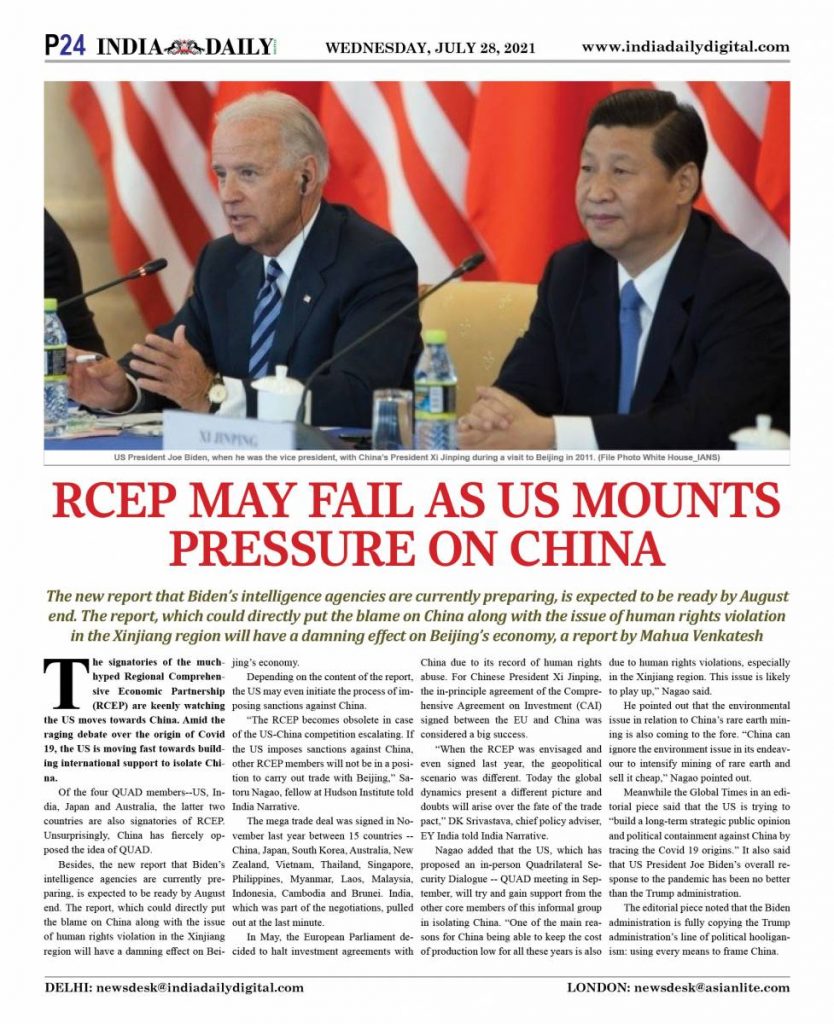
Observers say that the Xinjiang issue can trigger a major debate in the US about imposing sanctions against China. “This can majorly dent the RCEP, which is a China centric trade bloc. But if sanctions are imposed several country such as Japan and Australia among others will find it untenable to persist with RCEP,” an analyst who did not wish to be named said.
Apparently, the west is focusing on Xinjiang for two other reasons. First, Xinjiang is the gateway for China’s Belt and Road Initiative (BRI) as all cargo trains heading to Europe have to pass through the region. Second, Xinjiang is the lynchpin for China’s energy security. The West-East pipeline bringing gas to China’s coastal industrial heartland with Shanghai and Guangzhou as major icons of China’s emerging as the factory of the world pass through Xinjiang.
In a huge blow to Beijing, the European Parliament in May passed a motion freezing all European investment agreements with China.
“New Delhi appears to recognise the difficulties involved and thus appears more keen to cooperate with other maritime powers in maintaining security in the Indian Ocean region. This is a good first step to greater Indo-Pacific cooperation, but further coordination is clearly needed,” an Observer Research Foundation report noted.
(The content is being carried under an arrangement with indianarrative.com)


